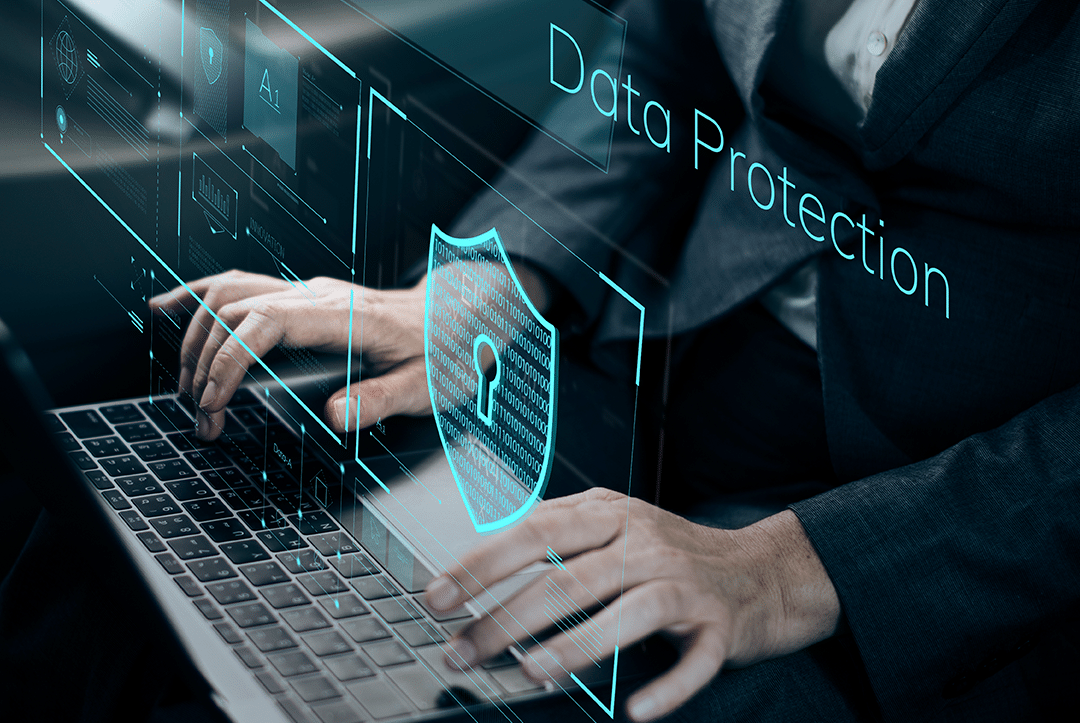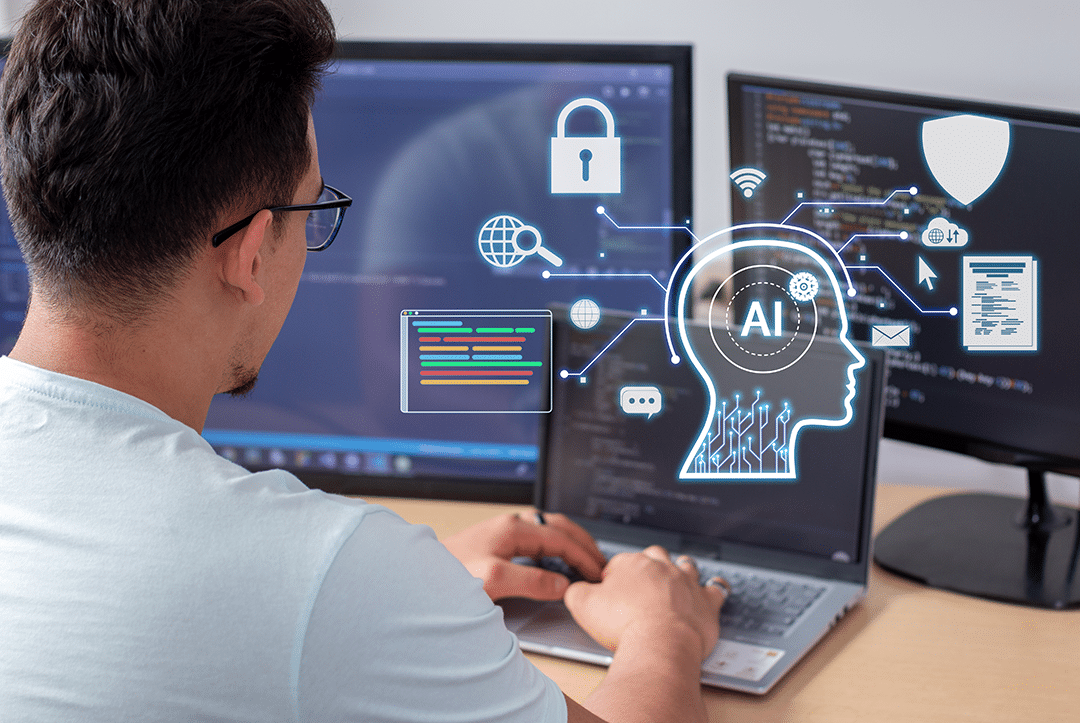Top 10 Questions About AI-Driven Security Response
Artificial intelligence (AI) is a security tool on the rise—and there are pressing questions about its role, implementation, and benefits.
We’ve compiled this FAQ guide with 10 common questions about AI-driven security responses to provide you with clarity and reassurance.
1. What is an AI-driven security response, and how does it work?
It may seem complicated, but it’s actually quite simple: AI security technology uses advanced algorithms to analyze data from cameras, sensors, and other inputs to identify potential threats in real-time.
AI doesn’t require heavy human oversight as traditional security systems do; instead, it continuously monitors feeds, recognizes patterns, and triggers alerts when it detects anomalies or risks. These systems can:
- Detect firearms, unauthorized access, or suspicious behavior.
- Automate routine tasks, such as video surveillance analysis.
- Provide actionable insights for faster, more effective responses.
With faster and more reliable threat detection, AI takes the burden off security staff and helps your teams stay focused on critical tasks.
2. How does AI improve cross-department communication?
Collaboration in the security space has never been easier. AI systems integrate seamlessly with existing infrastructure, which helps improve the flow of information across departments.
Here’s how this happens:
- Real-time alerts: ZeroEyes’ AI technology can send automated notifications to security teams, facilities management, and law enforcement simultaneously.
- Centralized dashboards: The data you need is consolidated into one interface, allowing teams to collaborate efficiently.
- Customizable access: Stakeholders can receive tailored alerts and reports relevant to their responsibilities, minimizing confusion and streamlining coordination.
Enhanced communication builds trust with your teams and leadership through proactive and coordinated responses to potential threats, and creates a sense of shared safety.

3. Can AI really help reduce false alarms?
Yes, it can. One advantage of AI is its ability to differentiate between genuine threats and benign activities. Traditional security systems often generate false alarms due to their limited ability to interpret context. AI addresses this by:
- Analyzing context: Advanced algorithms can distinguish between a firearm and an umbrella.
- Machine learning: AI systems continuously improve as they process more data, and become more accurate over time.
“False positives” can be greatly reduced by the use of AI systems like ZeroEyes, which also helps save time and resources. Greater accuracy boosts confidence in the system and alleviates the stress of responding to unnecessary alerts–allowing you and your team to focus on critical tasks.
4. What are the cost implications of adopting AI-driven security?
Like any new technology, AI does require an investment, but it can deliver significant short and long-term benefits.
Areas in which AI can help your team may include:
- Reducing labor costs: AI automates routine tasks and reduces the need for extensive manual monitoring.
- Preventing incidents: Faster threat detection lowers damages and liability costs.
- Optimizing resources: AI helps manage your team’s time and workload, ensuring they can focus on high-priority tasks.
For example: ZeroEyes’ AI gun detection platform can reduce response times by up to 50% during active shooter drills, lowering the financial impact of incidents. These systems can also provide peace of mind to your staff and help them be more efficient.

5. Will AI replace human security staff?
AI won’t replace human expertise, but it can optimize your operation. AI automates repetitive and time-consuming tasks and allows your team to:
- Focus on complex decision-making.
- Engage in proactive threat prevention.
- Improve overall situational awareness.
It’s not about reducing headcount, either—AI boosts your efficiency to help you focus on your most integral tasks. Think of AI as a valuable support tool…and in some cases, a force multiplier.
6. How does AI enhance emergency response?
Every second counts in a high-pressure situation. Using AI systems can improve emergency response by:
- Providing real-time data: AI pinpoints threat locations, predicts movements, and generates actionable insights.
- Streamlining communication: Automated alerts help first responders and other key staff receive critical information instantly.
- Reducing response times: Early detection helps cut emergency response times significantly to help save lives and reduce damages.
ZeroEyes’ AI gun detection technology can notify first responders of threats in as fast as 3–5 seconds. Why is this so important? A rapid alert system helps emergency response with real-time data to streamline communication and enable quicker decision-making in critical situations.
In a moment of crisis, there’s no time to waste–and ZeroEyes technology supports your team with efficient and effective response capabilities.
7. What are the privacy and ethical implications of using AI in security?
Introducing AI technology may raise some privacy concerns (which are valid), and it’s helpful if you address them transparently.
The questions you receive might focus on:
- Data usage: AI systems process data to detect threats. From an ethical standpoint, this data should not be used for non-security purposes.
- Compliance: Enable your AI provider to adhere to local and international privacy laws, such as GDPR or CCPA.
- Transparency: Communicate openly with stakeholders about how you collect, store, and use data.
Strong governance and ethical AI frameworks can help you balance security needs with privacy rights. ZeroEyes technology focuses solely on firearm detection and doesn’t engage in facial recognition. Read our FAQs to learn more about our commitment to privacy.

8. Are AI-driven security systems scalable?
From small offices to large campuses, the need for security is unchanged. ZeroEyes’ AI works with existing cameras and can be customized to your environment.
- Integration: Use existing infrastructure to minimize costs.
- Customization: Add features or expand coverage without disrupting operations.
- Cost Efficiency: Modular pricing models make implementation manageable for diverse organizations.
When a security system can scale and meet the needs of any setting, it creates confidence in the investment.
9. How do we measure the ROI of AI-driven security?
Being able to show the return on investment (ROI) is critical for anyone looking to use AI technology.
It’s as simple as this: When your team can work smarter, lower costs, and be more efficient in all facets, you have a system that’s worth the investment. Here’s how ZeroEyes can optimize your security operation:
- Labor savings: Quantify the impact of reduced manual monitoring and reallocations of personnel.
- Incident mitigation: Assess cost reductions from fewer incidents and liabilities.
- Operational efficiency: Track productivity improvements and system uptime.
While AI is an investment in itself, traditional security measures can be expensive and not as efficient. ZeroEyes’ AI gun detection can be up to 10 times more affordable than other methods like metal detectors or acoustic gunshot detection systems.
Cost-effective solutions help organizations improve security without taking on more expenses and can lead to significant savings compared to traditional security.
10. What’s the future of AI in security operations?
One of the main advantages of AI technology is the shift from reactive to proactive security. To minimize response time and be prepared for threats is a significant advantage, and those are just two ways AI continues to reshape the security landscape:
- Predictive analytics: Anticipate threats before they occur, shifting from reactive to proactive strategies.
- IoT integration: Connect AI with IoT devices for a holistic view of your operations.
- Automated incident management: Automate lockdowns, evacuations, and other critical protocols.
It also helps to stay informed and up-to-date on trends occurring in the AI landscape. An optimized and efficient operation is a safe operation, and ZeroEyes technology empowers your teams with cutting-edge tools to stay ahead.

What are the key considerations for implementing AI in security operations?
Integrating AI technology isn’t an out-of-the-box solution. It requires careful planning and evaluation, and collaboration with multiple teams and departments to help your facility support AI.
You should consider the following before moving forward with AI:
- Infrastructure compatibility: AI’s seamless integration with existing cameras means you can avoid costly equipment replacements and service disruptions.
- Vendor selection: Choose providers with proven expertise and a focus on transparency, compliance, and ethical AI practices.
- Training and adoption: Invest in training for your personnel to maximize the effectiveness of AI tools and gain acceptance of the technology.
- Ongoing maintenance: Regular updates and monitoring help maintain the system’s performance and adapt to evolving threats. ZeroEyes provides onboarding assistance, clear documentation, and 24/7 support to address challenges and promote smooth operation.
- Proven case studies: Take a look at real-world success stories and references to validate the efficacy and reliability of AI. In our case, ZeroEyes has been successfully deployed across various sectors to deliver measurable improvements in threat detection and response.
If your organization is ready and able to support AI technology, now is the time to consider it.
Transform Your Security
Look at it this way: AI technology is not a “nice to have” upgrade or simply something new. ZeroEyes’ gun detection system represents a transformative shift in security.
As we discussed above, the introduction of AI will require buy-in and it begins with stakeholder education. Address their concerns, display the wide range of measurable benefits that AI delivers, and watch your organization’s confidence boost.
Improved security and threat response is about coordination, efficiency, and accuracy—and ZeroEyes’ technology can identify a threat in as quickly as three seconds. Perhaps most importantly, AI empowers you to focus on what matters most: peace of mind for your organizations and communities. Speak with a ZeroEyes security expert now.
